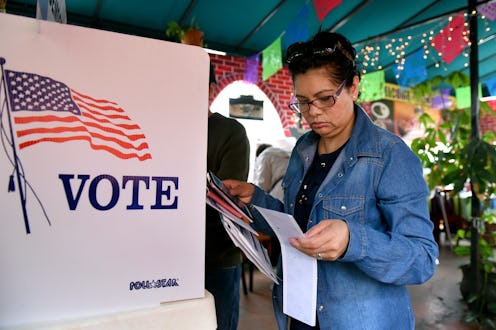News
California Has A Significant Amount Of Electors
California is the most populous state in the United States, with more than 38 million residents (which, by the way, is more than Canada's entire population). It makes sense then that California would have the most votes in the Electoral College. But how many electors does California have overall?
The United States doesn't have voters directly elect the president and vice president. Instead, voters are actually voting to select their state's electors. In all but two states, Maine and Nebraska, the candidate who gets the most votes wins all of the state's electors in a winner-takes-all system.
The Electoral College is made up of 538 electors; each state gets two electors for its two senators plus one vote for each member it has in the House of Representatives. Washington D.C. also functions as a state for the purposes of the election and has three electors. Since California has 53 representatives, it has 55 electors.
But how does California select its electors? Each party's nominee must file a list of its 55 potential electors and their contact information by October 1 of the presidential election year, according to the California Secretary of State's office. Each party in California has its own method to select its electors, but incumbent Senators, congressional representatives, or anyone already in office cannot serve as an elector in California.
The Democratic Party has each congressional nominee and each U.S. Senate nominee from the last two elections designate an elector. On the other hand, the Republican Party has a long list of positions including the nominees for Governor, Treasurer, Attorney General, and so on, that serve as electors if the Republican nominee is chosen. The American Independent, Green, and Libertarian parties nominate their electors at their state conventions. The Peace and Freedom Party also does this, except electors have to be 50 percent women and 50 percent men.
While the Constitution does not specify that electors need to vote for a specific candidate, some states, including California, do have laws in place to stop "faithless electors." However, there have only been eight such electors nationwide since 1900, and none of them have been prosecuted, according to Ballotpedia.
Interestingly enough, it is possible to win the popular vote but lose the election. This happened to Al Gore during the 2000 election, when he won the popular vote by 0.51 percent but lost the Electoral College vote to George W. Bush. Incidents like this have led to criticism of the system and talks of reform, but as of now, the Electoral College is all we've got in terms of the 2016 presidential election.
